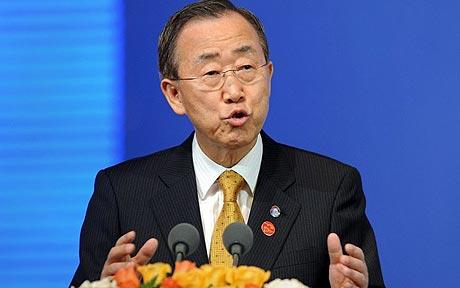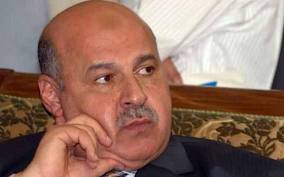CAIRO: Political forces and analysts were divided over the best possible scenario for Egypt in the coming period, with some leaning towards remaining under the Supreme Council of the Armed Forces’ (SCAF) rule, but giving the impending government a proper mandate, and others suggesting immediately handing over power to a presidential council.
Field Marshal failed to appease protesters in Tahrir Square after he announced in a televised statement Tuesday that presidential elections will take place no later than June 2012.
"SCAF needs to stay in power in order to secure Egypt internally and on the borders where Egypt faces several risks including smuggling of weapons through Libya and Sinai," political analyst Nabil Abdel Fattah from Al-Ahram Center for Political and Strategic Studies told Daily News Egypt.
Abdel Fattah suggested that the new government be responsible for economic reform and security with the aid of the military forces, in addition to organizing and securing the parliamentary elections slated for Nov. 28.
Political analyst Amr Hashem Rabie echoed Abel Fatah’s opinion, saying that full authority must be given to the new government to end the current crisis and encourage protesters in Tahrir to leave the square.
Tantawi said that SCAF would be willing to relinquish power through a public referendum, if necessary.
Adel Fattah described this as "unconstitutional," and a "grave mistake."
Raafat Fouda, constitutional law professor at Cairo University, agreed saying that it was against the constitutional decree announced by SCAF in March.
"SCAF didn’t rule Egypt through a referendum, then they shouldn’t leave through a referendum either," Fouda said.
"The people who accepted SCAF as their ruler during the transitional period can make it step down without a referendum," he added.
However, Fouda favored the scenario where SCAF hands over power to the head of the Supreme Constitutional Court (SCC).
Fouda said that according to all the constitutions around the world, when the president fails to perform his duties and the parliament fails as well, the head of the SCC takes over.
"The head of the SCC doesn’t have the right to run for president and he is a respected member of the judiciary," Fouda said.
The head of the SCC would then be responsible for appointing an interim government to draft the new constitution and hold the parliamentary elections.
Fouda also recommended handing over power to a presidential council.
"As long as the members of the presidential council include people with no specific political affiliation like presidential hopeful Mohamed ElBaradei for example," he said.
Some protesters in Tahrir suggested that all prominent presidential hopefuls including ElBaradei, Adel Moneim Aboul Fotouh, Hazem Salah Abou Ismail and Amr Moussa be part of the council.
"The political scenarios are many, but the problem lies with whether SCAF is willing to heed to the people’s demands and leave power as soon as possible," Fouda said.
On the other hand, 14 political powers argued in a conference Monday over the best political scenario, while calling for an end the bloodshed in Tahrir as soon as possible.
George Ishaq favored the scenario of handing over power to a presidential council, while forming a strong national salvation government.
"This government would be responsible for achieving security, stability and managing the elections," Ishaq said during the conference.
Ishaq also called for postponing the elections for one week until calm is restored.
"People will be too afraid to go vote under these circumstances of instability and chaos, after they were enthusiastic and looking forward to vote," he said, adding that he suspended his campaign.
However, presidential hopeful Amr Moussa, voiced a different opinion, saying that the parliamentary elections shouldn’t be delayed more than they already have, in order to stay on the "democratic path."
Ishaq quickly left the meeting saying he had to be with his “children in Tahrir Square,” shortly followed by Moussa.
Activist and retired military officer, Tag Abdel Alim, suggested appointing around 20 civilians representing the people to join SCAF in ruling the country, adding that any decision made by the new council has to be unanimous.
"SCAF won’t leave power and we all know this, so let’s suggest a solution that can be implemented," he said, to a round of applause from the attendees.
However, Fouda rejected this scenario saying, "it would completely paralyze the country if every decision had to be made unanimously and of course there will be differences between the civilians and SCAF."
Most of the prominent political powers were absent from the conference held by the Egyptian Brotherhood Movement.
The majority of parties attending, including the Egyptian Revolution, February 11 and Green Egypt, favored the idea of an independent interim government which isn’t controlled by SCAF.
The parties also called on military forces to take to the streets and form a buffer between police forces and protesters to end the clashes on Mohamed Mahmoud Street.
The Freedom and Justice Party, the Free Egyptians Party also urged SCAF to quickly appoint a powerful "national salvation" government. The Movement for Egypt’s Salvation said that SCAF should heed to the authority of this government as one of the state’s institutions.
The Free Egyptians also called on SCAF in a statement issued Wednesday to release all civilians tried in military courts and prosecute all those responsible for killing peaceful protesters in Tahrir Square.
Head of the FJP Mohamed Morsi said in a statement that the party would monitor SCAF to guarantee that it follows through with handing over power by the end of June 2012.
On the other hand the April 6 Youth Movement called on SCAF to hand over power to a presidential council after slamming Tantwai’s speech.

